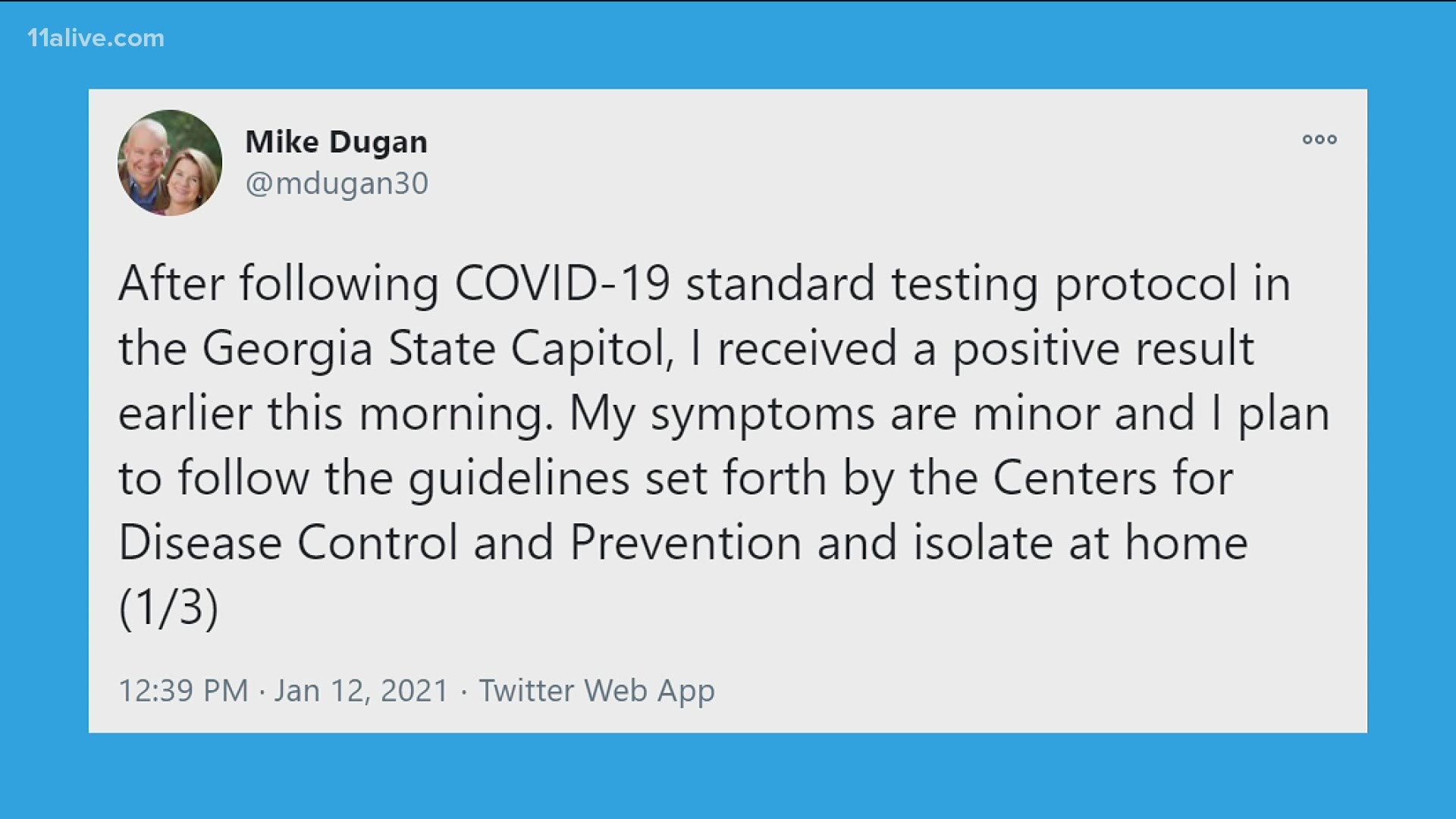ATLANTA — Georgia lawmakers widely disregarded orders to test for COVID-19, said House Speaker David Ralston Tuesday as the second day of the 40-day legislative session convened.
Also Tuesday, one of the top Senate Republicans announced that he had tested positive for the coronavirus. And more questions are beginning to arise about why the General Assembly is holding in-person sessions.
The state set up a COVID testing site at the Georgia State Capitol on Monday. Republican leadership had described the twice-a-week testing as "required" for lawmakers.
Yet, on Tuesday, Ralston announced that 74 House members who attended Monday's session did not get tested. The House has 179 members, with one seat vacant. About 15 members were listed as absent on Monday.
One senator who did get tested was Mike Dugan (R-Carrollton) – the powerful Republican majority leader who was central to the housekeeping that took place during the session’s opening day Monday.
Dugan posted on Twitter that his COVID test came back positive and that he would quarantine away from the State Capitol building.
On Tuesday, vaccination stations were set up inside two State Capitol offices to deliver vaccines to lawmakers over the age of 65. Seventy-seven-year-old Sen. Nan Orrock (D-Atlanta) got one of the vaccines.
"We have high needs, plenty of people at high risk," Orrock said after getting the inoculation in her left arm. "We all now know that this COVID can put you in the grave."
Sen. Orrock will need a second shot later this month.
"You will need to test before you come back," House Majority Leader Rep. Jon Burns (R-Newington) told House members on Tuesday.
But Democrat Roger Bruce asked why the legislature was meeting in person at all.
"When we were in session last go-'round, we took a vote on being able to conduct our business remotely," Bruce said to Burns on the House floor. "Whatever happened to that?"
"The protocol we have in place, the additional safety surveillance, ensures the safety of our members," Burns said, adding that while the state House had voted to hold virtual meetings in 2020, the state Senate didn't.
Burns noted that committee meetings -- including budget hearings next week -- will be held virtually.
The question is whether lawmakers can prevent a COVID outbreak from shutting down its in-person sessions over the next 38 workdays.

